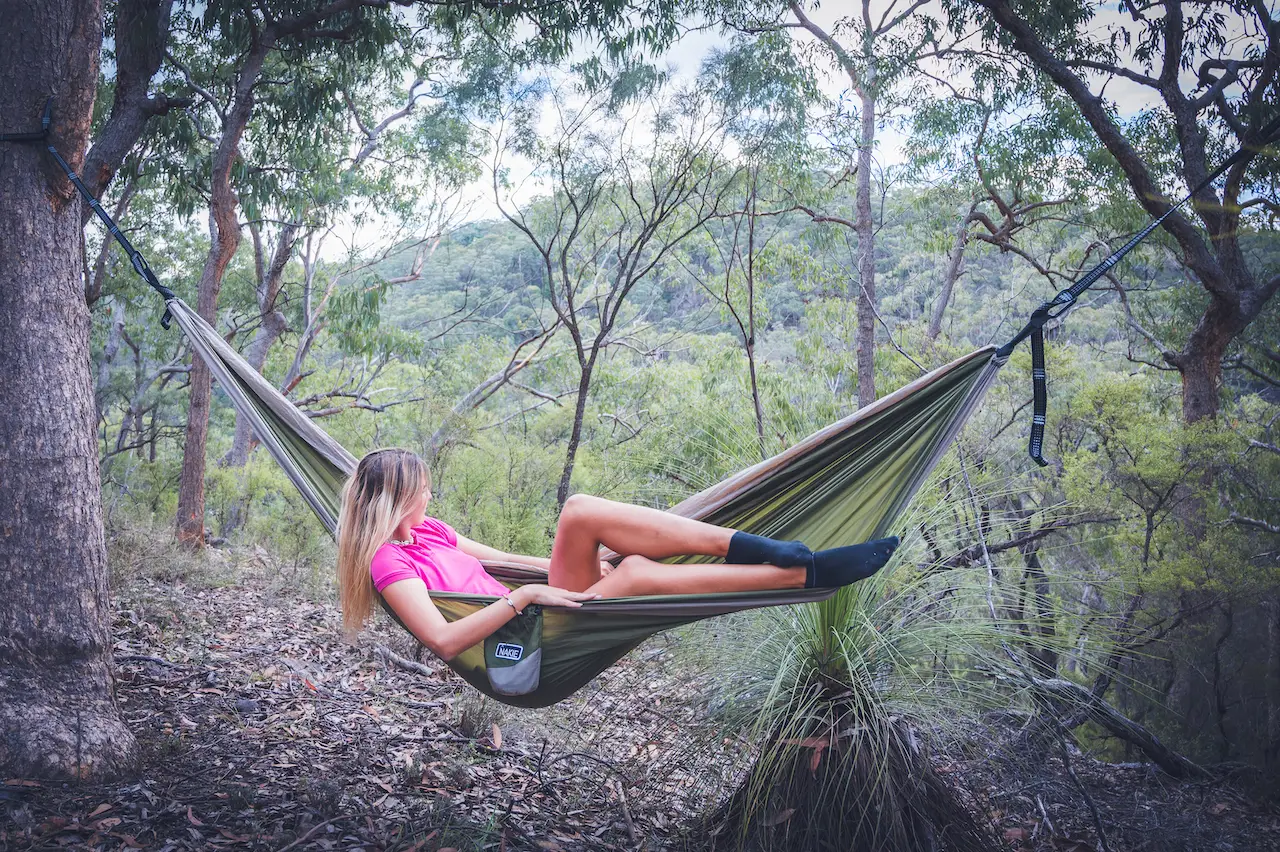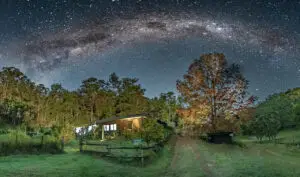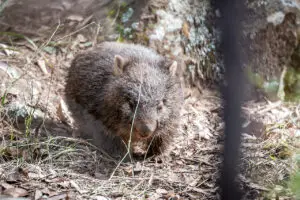OK, so everyone know Australia is full of dangerous critters, right? But what safety things are ACTUALLY important when camping in the bush? We’ll cover wildlife in part two for those of you who don’t know your drop bears from your danger noodles. But here are some important safety tips:
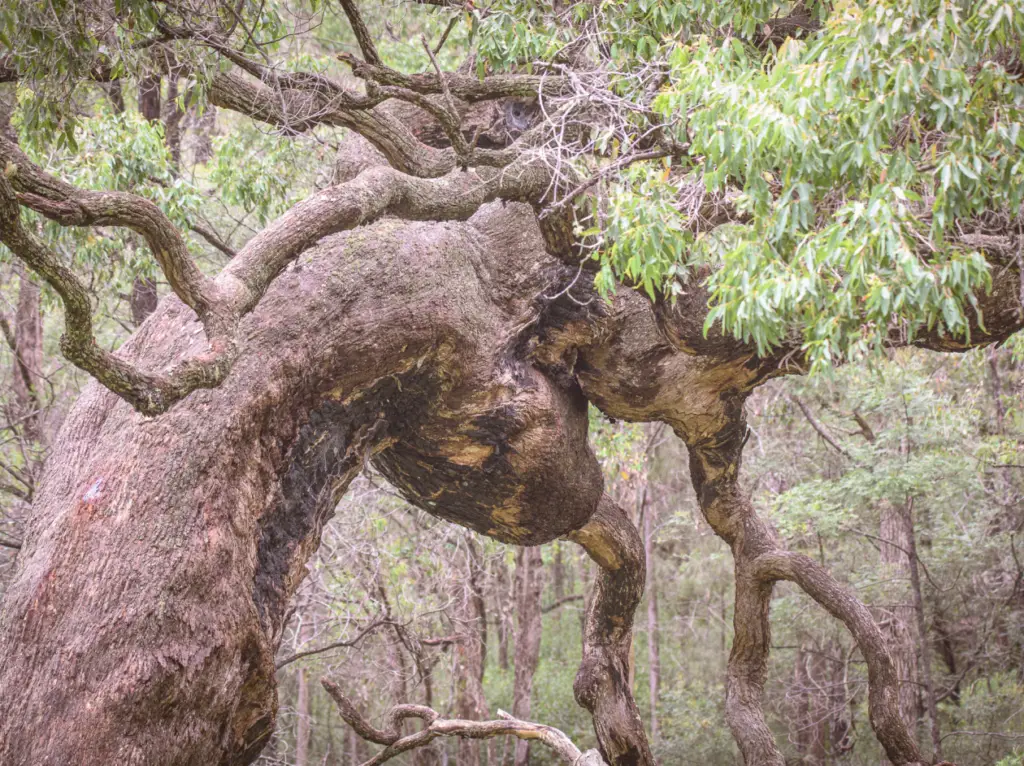
Some trees may look like the perfect shelter, like this one out in Yengo National Park; but you never know when branches are going to fall…
Choose your site carefully
Our trees are amongst the hardest and strongest wood in the world; great if you’re pitching your tree tent (check them out at tentsile.com ), but not so great if a branch lands on you or your gear. Always check overhead and upslope from where you intend to camp, to make sure nothing is likely to break off and fall on you in the wind/rain.
Everyone loves a fire when camping in Australia
But it is your responsibility to ensure it is fully extinguished before you leave your site. The last thing you want to be remembered for is an RFS callout for the bushfire you left behind! Things to remember:
- Plan to finish burning the wood you put in, so you can rake out the coals and put your left over water on them before you leave.
- Don’t use sand or dirt to cover the fire, as this will allow coals to stay hot underneath, and possibly reignite if it gets windy later in the day.
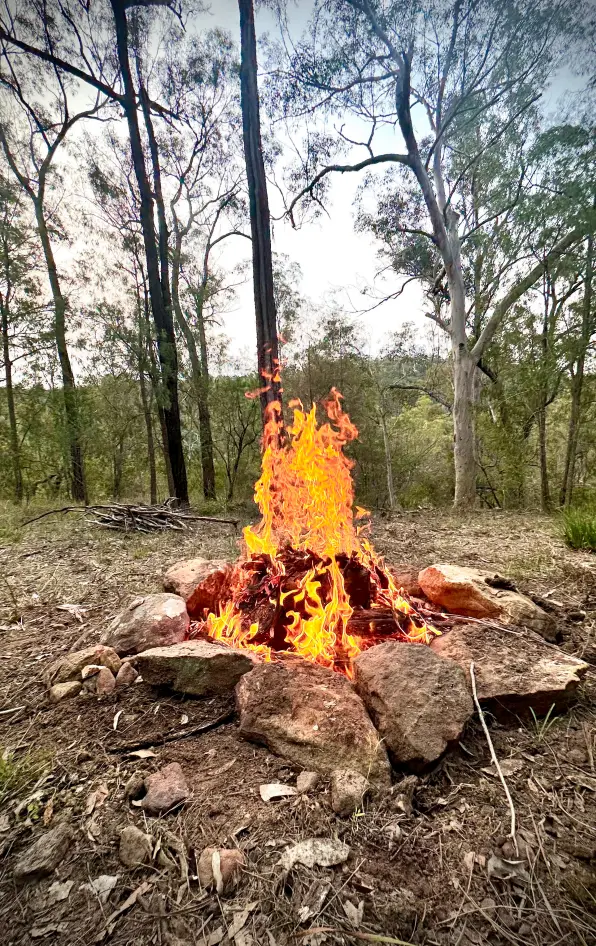
“Make sure you tell
someone where you’re
going, and let them know
when you’re back safe!”-your mum (probably)
Keep your fire within the designated area at your campsite, and fully extinguish BEFORE you leave. Click here for a useful factsheet from the RFS
If you’re at a shared site
It is important to think about the other camping around you. Make sure you keep noise to a minimum after bedtime, including music, generators or just human voices. If you don’t want to have neighbours, why not check out some of the private sites on hipcamp.com, where you will be the only people around.
Many of the best campsite you’ll find are outside of mobile signal
It’s a great way to escape, but not ideal if something unexpected happens. Options such as satellite phones or internet can be expensive, whilst some campsites might have WiFi available in designated areas, or people onsite who you can turn to. You may even have a handheld CB radio you can take for emergencies. If there are none of these, make sure you tell someone where you’re going, and let them know when you’re back safe!
Is your first aid kit fully stocked, and in date?
And do you, or someone in your party know how to use it? Trips and falls, cuts from knives and axes, or burns from the fire/cooking are amongst the most common ways to spoil your weekend away. Does the site you’re visiting have any first aid/emergency options? Why not ask if they do?
Now, this is not an exhaustive list, but just a few things we think are important here at Willow’s Retreat.
We’re lucky here; we have decades of experience with emergencies of all sorts, and definitely have your back whilst you stay. Is there anything else you would add?

